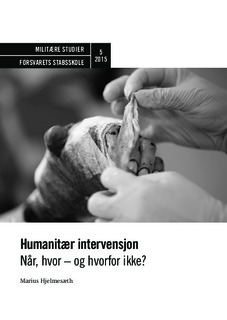| dc.description.abstract | In the post-Cold War era, we have seen an increasing number of innocent civilians exposed to grave threats and violent attacks, especially in failed states. In 2005, the UN doctrine of Responsibility to protect (R2P) laid an international framework for humanitarian intervention. The evolving practice of such intervention, however, raises a number of fundamental questions. In some conflicts, the international community has acted quickly, whereas in other cases, there have been no such attempts. The purpose of the current study is to explain the selective use of military intervention on humanitarian grounds, compared in the cases of Kosovo, Darfur, Libya, and Syria. Drawing on the theory of Peter Viggo Jakobsen, the study tries to identify five decisive factors, namely, clear threat to civilians and the ensuing debates of the UN Security Council, national interests of the main countries, the expectation of military success, the pressure of regional organizations, and the effect of media and public opinion («the CNN effect»). Key findings suggest that even if the threat against civilians constitutes a prerequisite for humanitarian intervention, the consideration of national interest is the single most important factor. When national interest allows intervention, the expectation of military success constitutes an important variable (thus, operational risk should be low and the time frame short). Also, regional organizations are important when it comes to the legitimacy of humanitarian intervention. For instance, it seems that regional organizations could play a significant role in lobbying the UN Security Council to act, or to persuade its permanent members to intervene in humanitarian crises. The effect of media and public opinion remains unclear. However, the CNN effect is increasingly more important once the decision to intervene has been made and the operation is launched. | nb_NO |
